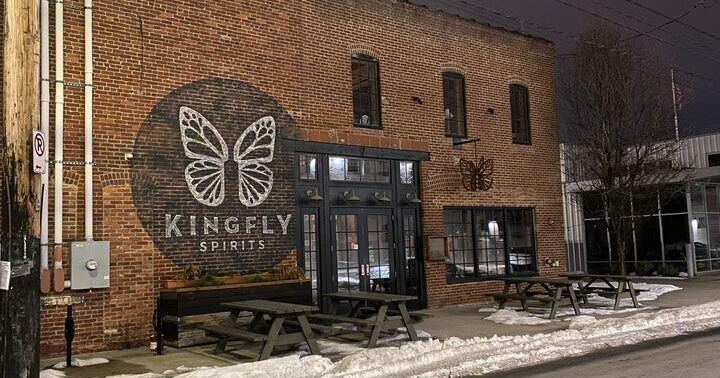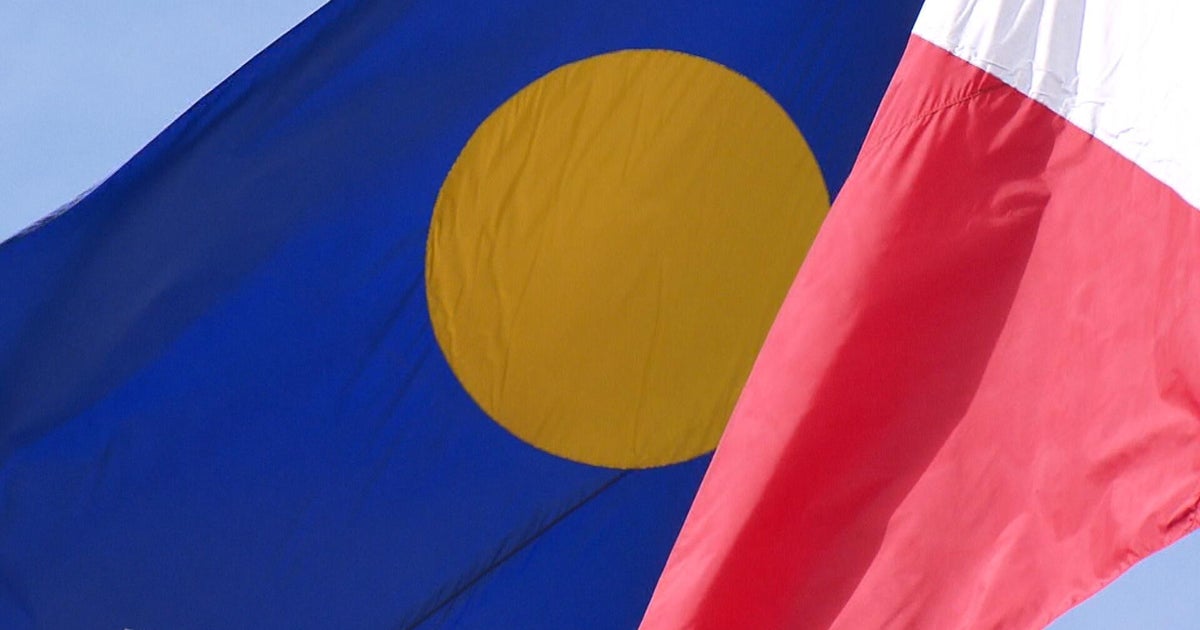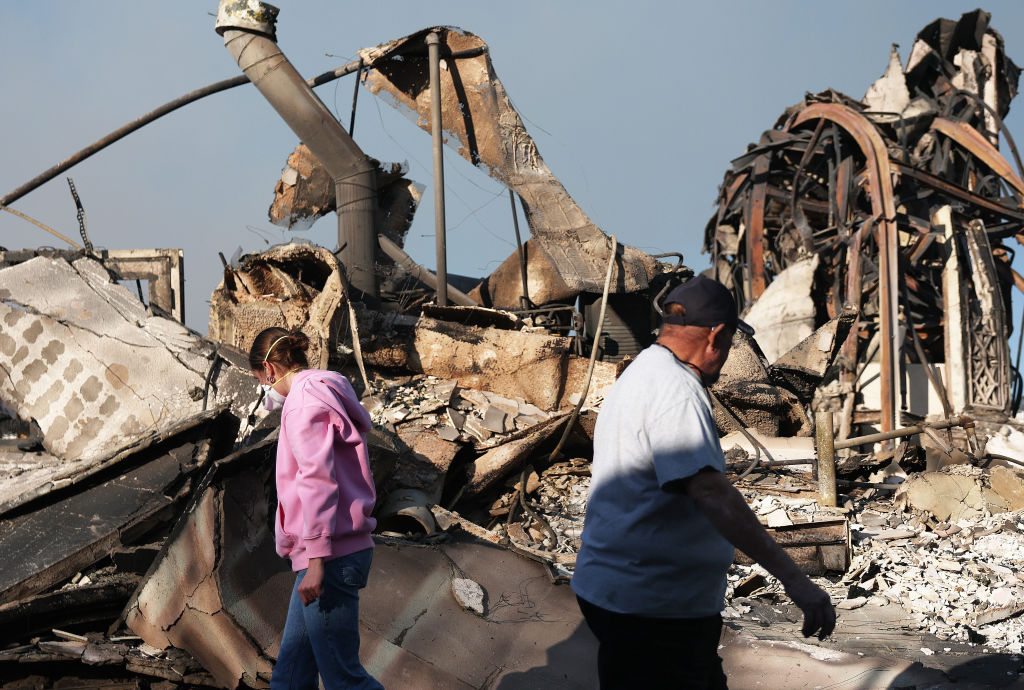Strip club owner won't have to pay back millions in aid meant for small businesses
The owner of one of the largest chains of strip clubs in the country, Rick's Cabaret, as well as a chain of military-themed sports bars called Bombshells, got a lifeline earlier this year from a coronavirus relief program meant for small businesses.
Shares of Rick's owner, RCI Hospitality, have soared since receiving its Paycheck Protection Program loan this past spring, up 70% this year. That's pushed the company's market value to $300 million, nearly double what it was before the pandemic. RCI has also raised $5.6 million in debt offerings since getting support from the government, and spent $1 million rewarding shareholders with a stock buyback.
Now the company says much of the nearly $5.5 million it got from the government-backed, low-interest loan program won't have to be repaid. On December 14, RCI Hospitality disclosed in an annual financial filing that $4.9 million of its PPP loan had been forgiven.
Forgiveness of the loan plus interest — as long as the money is used for qualifying expenses, mainly payroll — was always part of the PPP, one of the most popular, and controversial, details of the government's Corornavirus Aid, Relief and Economic Security (CARES) Act passed in March.
Starting in late November, a number of publicly traded companies that had qualified for aid from the small-business relief program began disclosing that their loans would not have to be paid back. But accounting firms and government watchdogs say that for many small business the wait to get the same good news has been long. Most are still waiting.
In all, just 370,000, or about 7%, of the more than 5.2 million loans granted through the program have qualified for forgiveness as of November 22, which is the latest available information from the U.S. Small Business Administration. The average amount forgiven is $105,000.
The $4.9 million that RCI Hospitality is off the hook for appears to be the largest amount any one company has had forgiven by the program so far, according to a record search by CBS MoneyWatch.
"Unfortunately it is a replay of what happened in the early days of the program when many of these wealthy and powerful companies were able to cut in line in order to get money from the program ahead of small businesses," said Kyle Herring, president of Accountable.US, a watchdog group that has been critical of the program. "We are seeing the same in the forgiveness process."
Rick's: We "followed all rules"
In an emailed statement to CBS MoneyWatch, an RCI spokesperson said that the company "believes that it has followed all rules and guidance provided by the Small Business Administration regarding the Paycheck Protection Program. Of RCI's businesses, only subsidiaries in its restaurant division, shared service entity and lounge received loans under the Paycheck Protection Program, and all such funds were used towards employee payroll and other eligible expenses in those entities."
The fact that RCI, which has nearly 2,100 employees and reported $170 million in sales in 2019, even got a PPP loan was controversial from the start. The Paycheck Protection Program, run by the Small Business Administration, was meant to help small businesses survive the crushing impact of the coronavirus pandemic. The program granted forgivable loans that charged just 1% interest to companies with fewer than 500 employees, though there were a lot of loopholes to the size limit. About $525 billion was lent through the program, which expired in early August.
RCI's loan is also notable because strip clubs were specifically barred by the SBA from the Paycheck Protection Program, though a number of adult clubs sued to gain access to it.
RCI Hospitality did not have to sue. It received PPP funding in early May, according to the quarterly financial statement it filed with the U.S. Securities and Exchange Commission. In the filing, the company said that none of the money it received from the government program would go toward its "adult nightclub" business.
Facing criticism, Treasury Secretary Steven Mnuchin in the spring announced that the government would automatically audit all loans over $2 million. At the time, the Treasury Department put out guidance that said most public companies wouldn't qualify for the Paycheck program, and that only companies that truly needed a government-backed loan to keep their businesses operating at pre-COVID-19 levels, and couldn't borrow elsewhere, would be eligible for funds. The government said any companies that borrowed from the program in bad faith could face criminal prosecution.
Based on a search of SEC filings, it appears RCI is the only public company so far to have more than $2 million forgiven from the program. Other public companies that have borrowed more than $2 million from the program and have applied for forgiveness say they have not heard back yet on their forgiveness status.
RCI's $5.4 million from the PPP was received through 12 separate loans. Multiple loans were allowed for restaurants and hotel chains that had fewer than 500 employees per location. Each location had to apply individually. RCI's largest loan was $1.1 million. The company in its recent disclosure said 10 of its 12 loans were 100% forgiven. There is no indication in the disclosures that any of RCI's loans were audited prior to their being granted forgiveness.
"Small businesses are still struggling"
Congress passed a new relief bill Monday that will provide an additional $900 billion in aid to people and companies suffering financially from the coronavirus pandemic. The bill funds up to $285 billion in new PPP loans. That's despite Department of Justice findings of fraud with PPP loans and others have criticized the program for not saving enough jobs. Public companies, like RCI, are barred from borrowing from the PPP in its latest round.
Accountable.US' Kyle Herring said he was in favor of refunding the aid program.
"Small businesses are still struggling," Herring said prior to the passage of the latest PPP round. "That being said, reasonable restrictions should be put on these funds so that the same mistakes are not made."



